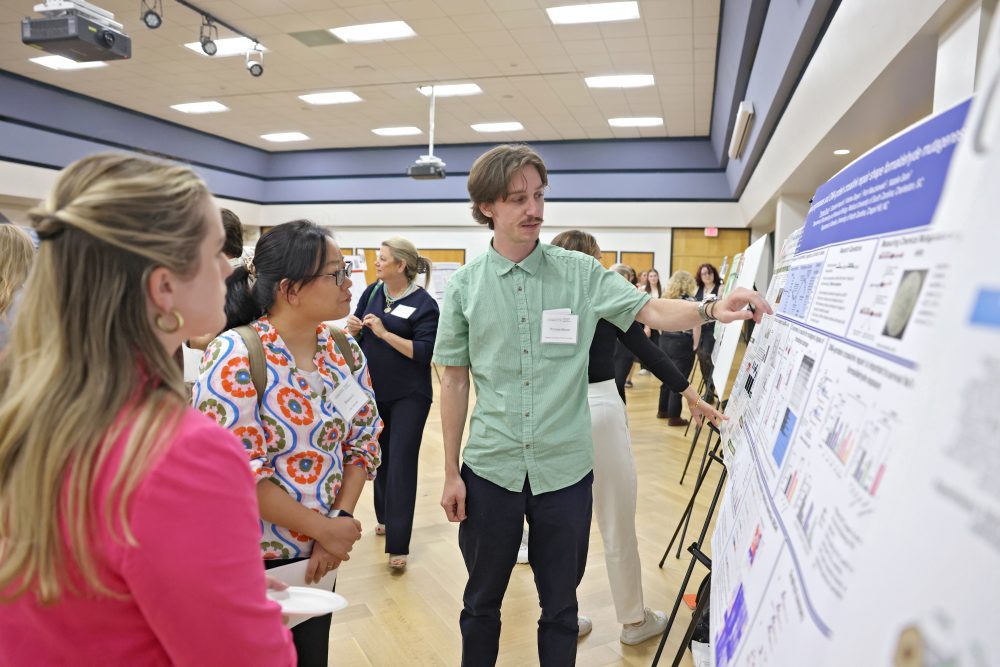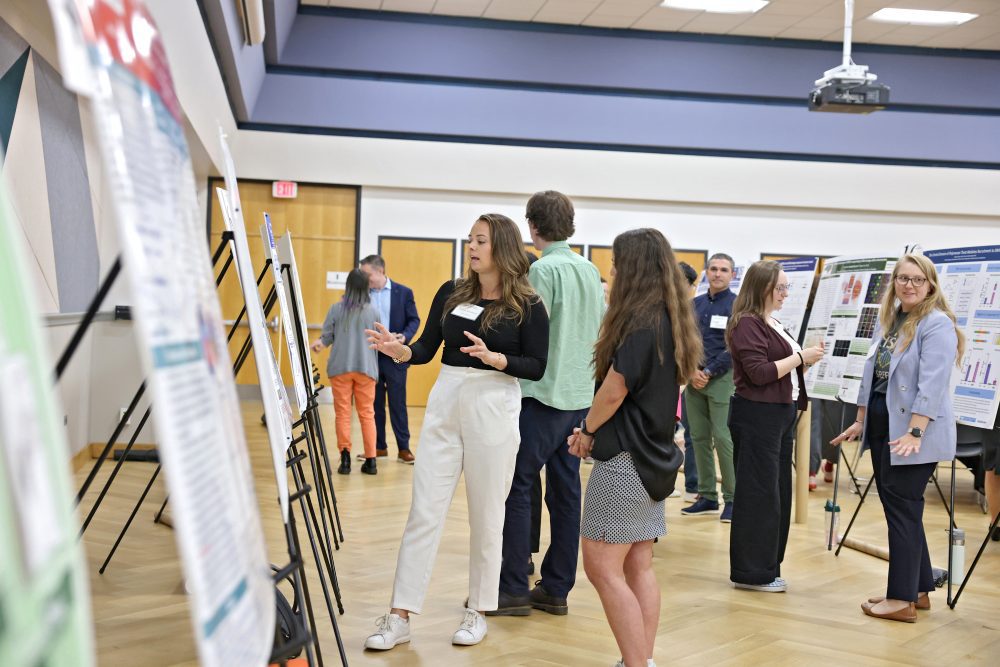Klein College hosts Carolina Symposium on Genome Integrity and Chromatin Regulation
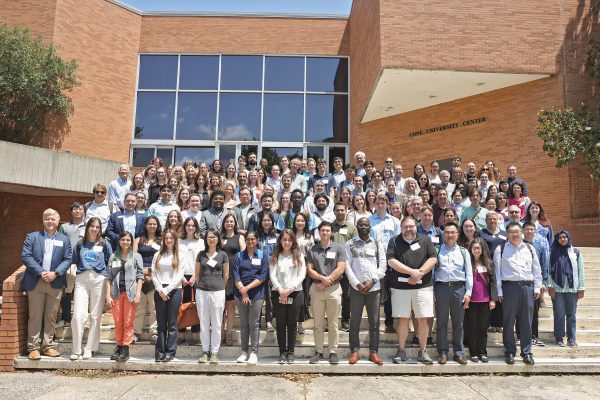
More than 130 researchers from North and South Carolina convened in the UNC Charlotte Cone University Center on Wednesday, June 11, for the inaugural Carolina Symposium on Genome Integrity and Chromatin Regulation.
The symposium was hosted by the Department of Biological Sciences and the Center for Biomedical Engineering and Science in the Klein College of Science and highlighted the cutting-edge advances in genome integrity and chromatin regulation.
The conference was organized by Christine Richardson, chair of biological sciences and director of CBES; Shan Yan, professor of biology and associate chair for research; and Xiaojun Ren, associate professor and the Irwin Belk Distinguished Scholar of Biology.
The symposium fostered scientific exchange, collaboration, and networking among researchers at all career stages, and provided valuable learning opportunities for trainees, offering them a platform to present their work through the poster session and engage with leading experts in the field.
“We were honored to have the support of UNC Charlotte to host this successful symposium, with exceptional attendance and overwhelmingly positive feedback,” said Richardson. “The areas of genome integrity and chromatin regulation tie together the strengths of so many researchers in the Southeast, enabling us to leverage the success of this meeting toward building a bigger collaborative association between these institutions.”
Richardson and UNC Charlotte Vice Chancellor of Research John L. Daniels offered a welcome from the University.
Prominent researchers from Harvard University and Johns Hopkins University gave the keynote addresses, as well as sessions with invited speakers from Duke University and UNC Chapel Hill. Contributed speakers were selected from submissions and given by researchers from Clemson University, UNC Charlotte, NC State University, Wake Forest University, and the Medical University of South Carolina.
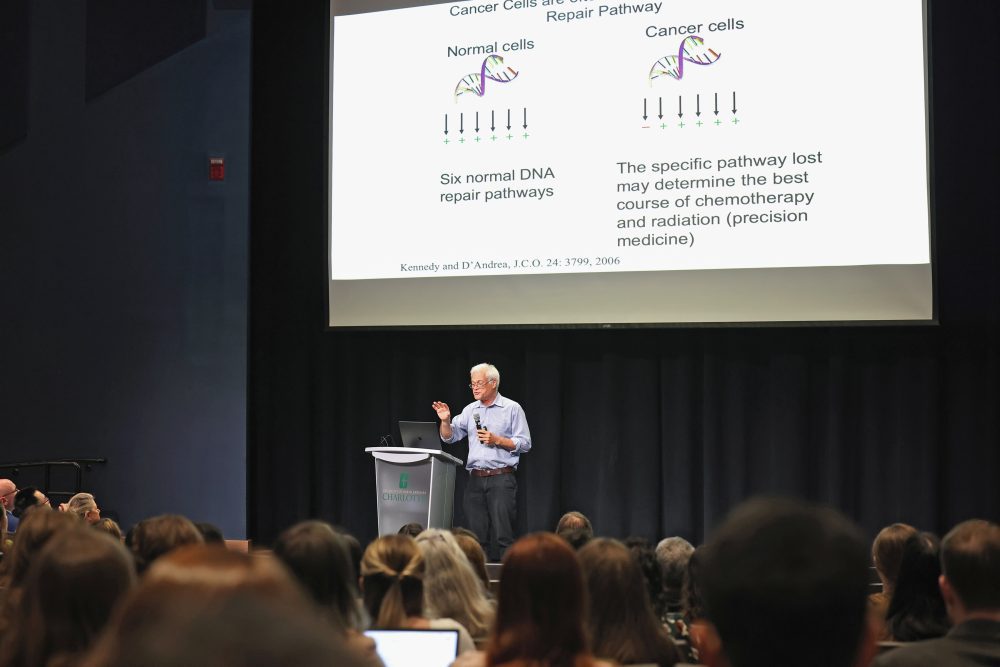
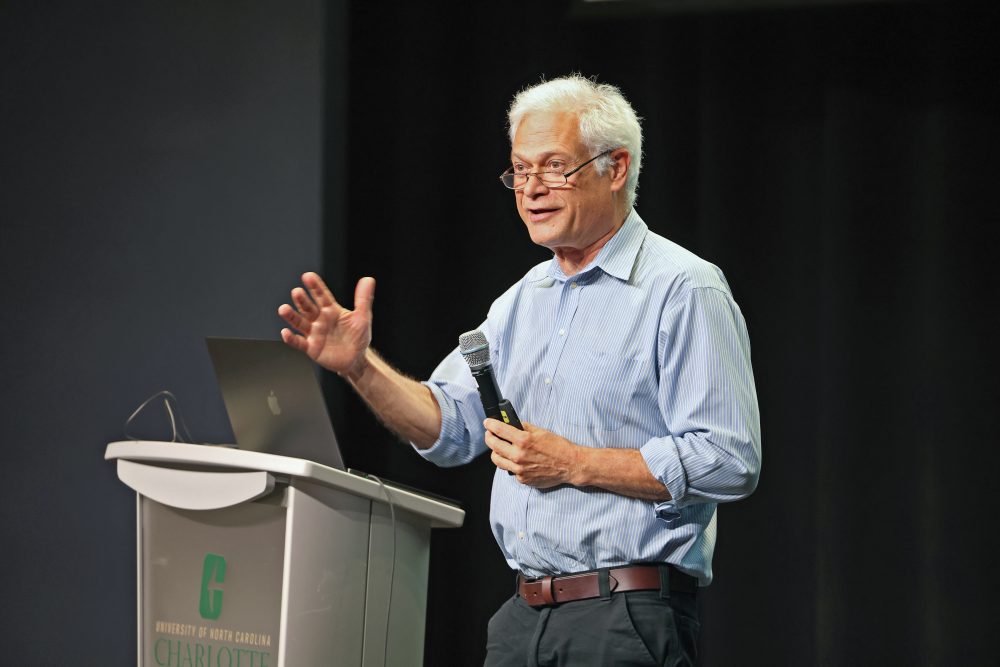
Alan D. D’Andrea, M.D., gave the morning keynote titled “CHAMP1 complex directs heterochromatin assembly and promotes homology-directed DNA repair.”
Alan D. D’Andrea, M.D., the Fuller-American Cancer Society Professor at Dana-Farber Cancer Institute and Harvard University and Member of the National Academy of Science and the National Academy of Medicine, delivered the morning keynote address.
Carl Wu, Ph.D., Bloomberg Distinguished Professor at Johns Hopkins University and Member of the National Academy of Science and the National Academy of Medicine, gave the afternoon keynote.
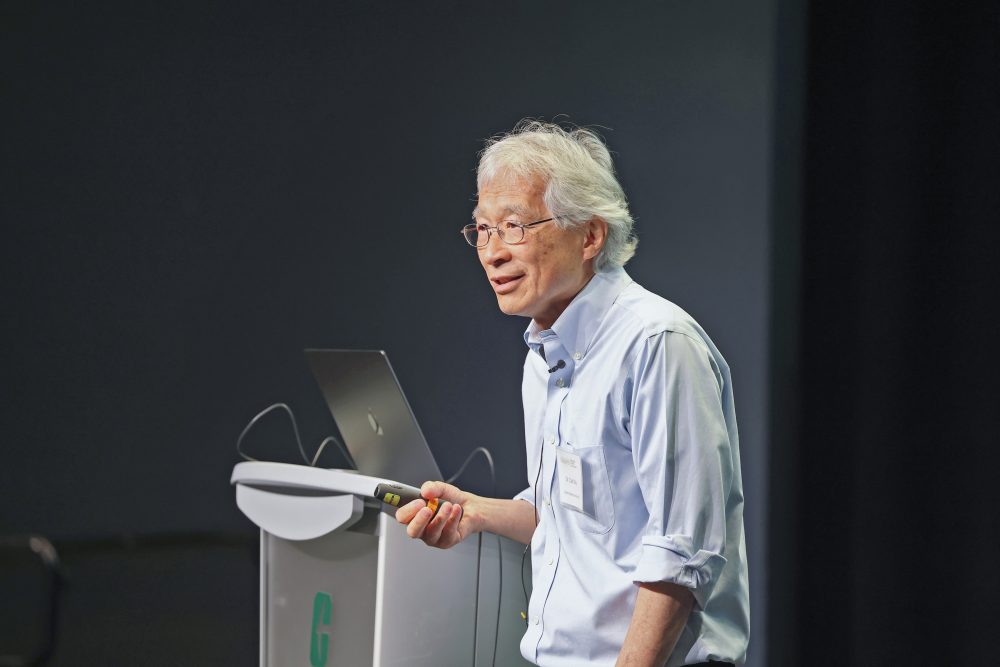
Carl Wu, Ph.D., delivered the afternoon keynote address titled “Shaping the dynamic chromatin landscape for gene expression at single-molecule resolution.”
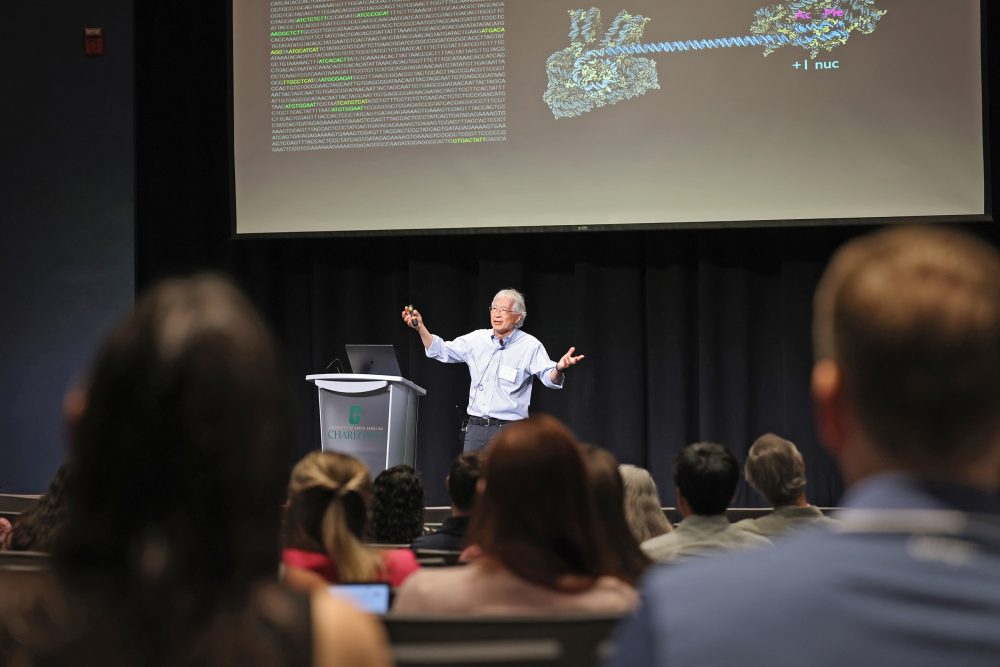
“There are many research labs with research interests in the areas of genome integrity and chromatin regulation at academic and research institutions in North Carolina and South Carolina,” said Yan. “This Carolina Symposium provides opportunities for investigators and researchers including trainees to disseminate research findings and foster potential collaborations. We hope this symposium will become an annual event in the future.”
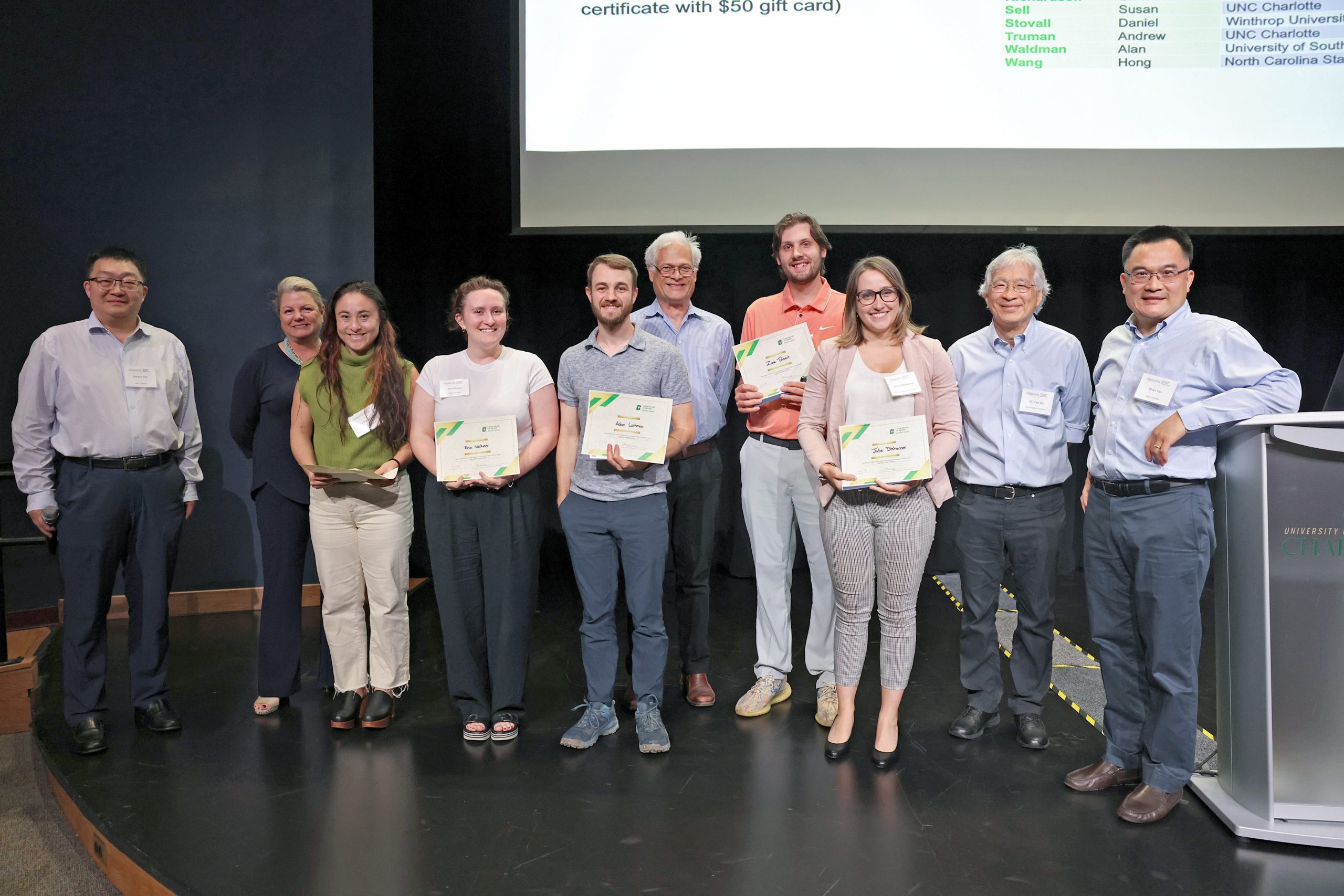
“I am excited that leading scientists have recognized UNC Charlotte as a premier hub for impactful research and training at the intersection of genome integrity and chromatin regulation,” Xiaojun said.
More than 45 researchers presented posters during the poster session, and winners were selected by a panel of 15 experts from Clemson University, Medical University of South Carolina, North Carolina State University, UNC Charlotte, UNC Chapel Hill, University of South Carolina, and Winthrop University.
Poster session winners received monetary prizes, including award certificates:
First prize winner: Hana Wasserman, Duke University
Second prize winner: Zane Tolbert, Clemson University
Third prize winner: Julie Disharoon, Medical University of South Carolina
Two honorable mentions: Erin Dickert, Duke University and Adam Luthman, UNC Chapel Hill
